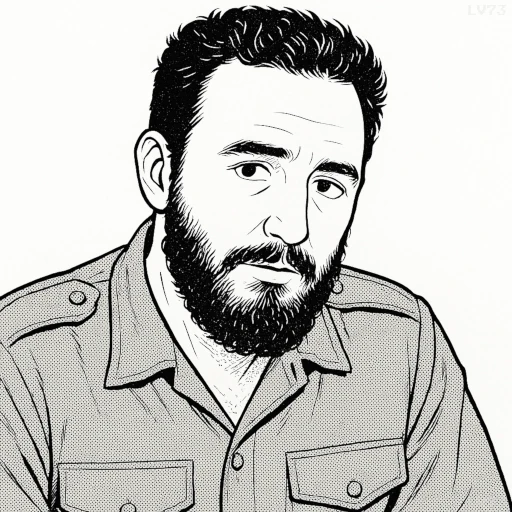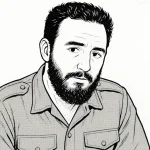“Born to a tribal Bedouin family of nomadic desert shepherds in the region of Tripoli, Gaddafi was profoundly anti-colonialist. It is affirmed that his paternal grandfather died fighting against the Italian invaders when Libya was invaded by them in 1911.”

- August 13, 1926 – November 25, 2016
- Cuban
- Revolutionary, Prime Minister and President of Cuba, Communist Leader
table of contents
Quote
“Born to a tribal Bedouin family of nomadic desert shepherds in the region of Tripoli, Gaddafi was profoundly anti-colonialist. It is affirmed that his paternal grandfather died fighting against the Italian invaders when Libya was invaded by them in 1911.”
Explanation
This quote emphasizes Muammar Gaddafi’s roots in a humble and historically oppressed background, framing his political ideology and leadership within the context of anti-colonial resistance. By highlighting that Gaddafi was born to a nomadic Bedouin family in the region of Tripoli, Fidel Castro underscores his connection to Libya’s indigenous and tribal heritage, not to urban elites or colonial collaborators. The reference to his grandfather’s death in resistance to the Italian invasion of 1911 provides a powerful ancestral link to Libya’s long struggle for sovereignty and dignity.
Historically, Libya endured brutal colonization by Italy, marked by repression, forced displacement, and war crimes. Gaddafi’s profound anti-colonialism became the foundation of his ideology—especially his opposition to Western imperialism, U.S. influence in the Arab world, and foreign military presence in Africa and the Middle East. Castro’s framing of Gaddafi as part of this lineage portrays him not merely as a political leader, but as a product and continuation of a historical resistance movement.
In today’s context, the quote contributes to understanding how personal history and national trauma shape revolutionary figures. It affirms that leaders like Gaddafi, for all their controversies, often rise from genuine historical grievances and collective memory of foreign domination. Castro’s words serve as a reminder that anti-colonial identity remains a powerful force in global politics, and that many postcolonial leaders are seen—by themselves and their allies—not just as heads of state, but as symbols of unfinished liberation.
Would you like to share your impressions or related stories about this quote in the comments section?
